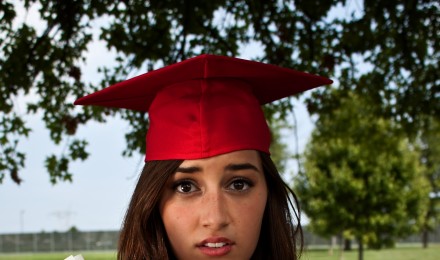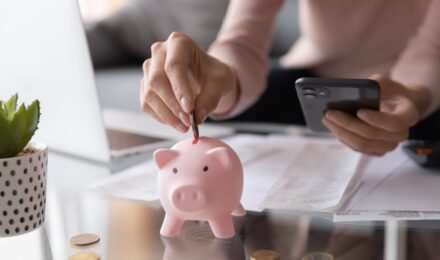When it comes to borrowing money for student loans, there is no doubt that the best way to go is to get one from the government. Federal student loans are incredibly good when it comes to interest rates and repayment options, and private institutions just cannot compare. Recent events, however, may be changing the low interest rates on student loans that so many have enjoyed for so long.
At the present time, the interest rates for Federal student loans for undergraduates are a mere 3.4%. This rate is good for the duration of the loan. Federal student loans for graduate programs and for parents – the PLUS program – have an interest rate of 6.8 percent. The interest rate of 3.4% applies only to subsidized loans, which means those loans that are interest-free while the student is in college and taking at least half-time classes.
These percentages are about to change, though, unless Congress decides to act to keep them the same. The New York Times reports that without any action, the interest rates on undergraduate student loans will double – they will jump to 6.8%.
Some recent news may help to ensure that the interest rates are raised – sooner or later. For one thing, the US Department of Education has reported that the student loan default rate has almost doubled since 2005. In that year, the rate of default was 4.6%, and in 2009, the latest reported figures available, the rate is now at 8.8%.
Another development deals with the amount of student loans. For the first time in history, student loans will surpass $1 trillion in 2012, according to FinAid.org. There is a Federal student loan clock that shows the amount of money borrowed as student loans, and the clock is rising by $2,854 every second. At the present time, the amount owed is greater than the total amount of credit card debt.
At the present time, Congress and the President are working on the issue, but there seems to be some disagreement among them. C-span reports that they are working to delay the rise in interest for student loans for one year, but where the money will come from to offset the lower interest rates remains to be seen.
Some factors in the debate include the rise of the cost of education and the inability of student loans to keep up with the cost. The lower interest rates on student loans has made it possible for many people to borrow large amounts of money, but who also are either going to be unable to get good paying jobs, or do not need a degree to work in the job that they now have. There is also the fact that as many as 40 percent of first-time college students will never finish their college degree within six years, according to Neal McCluskey at USNews.
A rise in the interest rate on student loans will definitely mean that college will cost more than ever. Even at the higher rate of 6.8%, however, it still is considerably cheaper than what most private student loans will offer.
When it comes to borrowing money for student loans, there is no doubt that the best way to go is to get one from the government. Federal student loans are incredibly good when it comes to interest rates and repayment options, and private institutions just cannot compare. Recent events, however, may be changing the low interest rates on student loans that so many have enjoyed for so long.
At the present time, the interest rates for Federal student loans for undergraduates are a mere 3.4%. This rate is good for the duration of the loan. Federal student loans for graduate programs and for parents – the PLUS program – have an interest rate of 6.8 percent. The interest rate of 3.4% applies only to subsidized loans, which means those loans that are interest-free while the student is in college and taking at least half-time classes.
These percentages are about to change, though, unless Congress decides to act to keep them the same. The New York Times reports that without any action, the interest rates on undergraduate student loans will double – they will jump to 6.8%.
Some recent news may help to ensure that the interest rates are raised – sooner or later. For one thing, the US Department of Education has reported that the student loan default rate has almost doubled since 2005. In that year, the rate of default was 4.6%, and in 2009, the latest reported figures available, the rate is now at 8.8%.
Another development deals with the amount of student loans. For the first time in history, student loans will surpass $1 trillion in 2012, according to FinAid.org. There is a Federal student loan clock that shows the amount of money borrowed as student loans, and the clock is rising by $2,854 every second. At the present time, the amount owed is greater than the total amount of credit card debt.
At the present time, Congress and the President are working on the issue, but there seems to be some disagreement among them. C-span reports that they are working to delay the rise in interest for student loans for one year, but where the money will come from to offset the lower interest rates remains to be seen.
Some factors in the debate include the rise of the cost of education and the inability of student loans to keep up with the cost. The lower interest rates on student loans has made it possible for many people to borrow large amounts of money, but who also are either going to be unable to get good paying jobs, or do not need a degree to work in the job that they now have. There is also the fact that as many as 40 percent of first-time college students will never finish their college degree within six years, according to Neal McCluskey at USNews.
A rise in the interest rate on student loans will definitely mean that college will cost more than ever. Even at the higher rate of 6.8%, however, it still is considerably cheaper than what most private student loans will offer.






